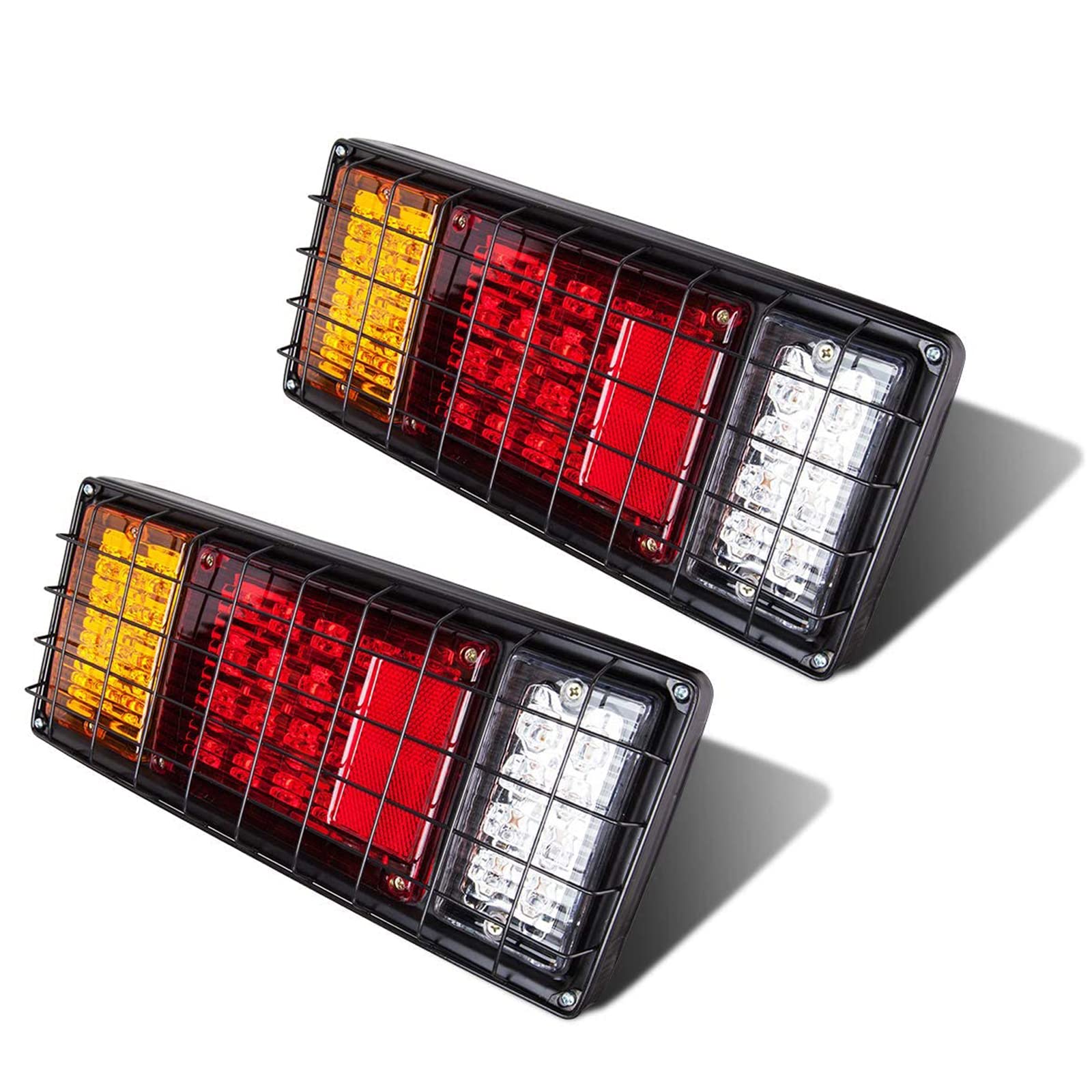
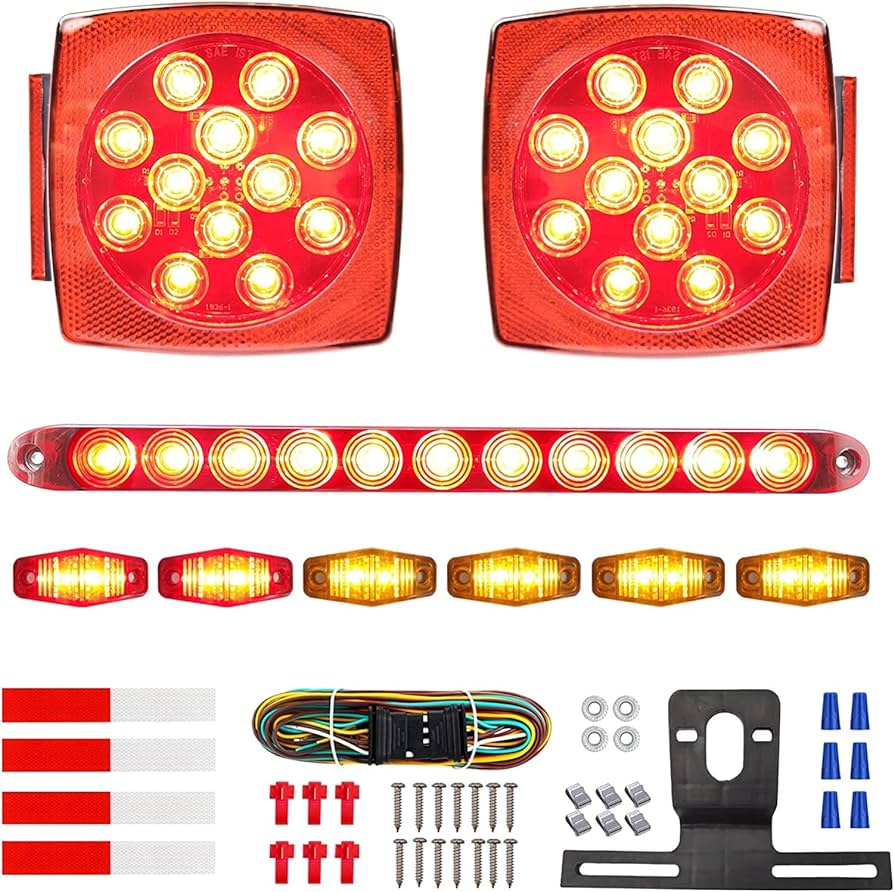
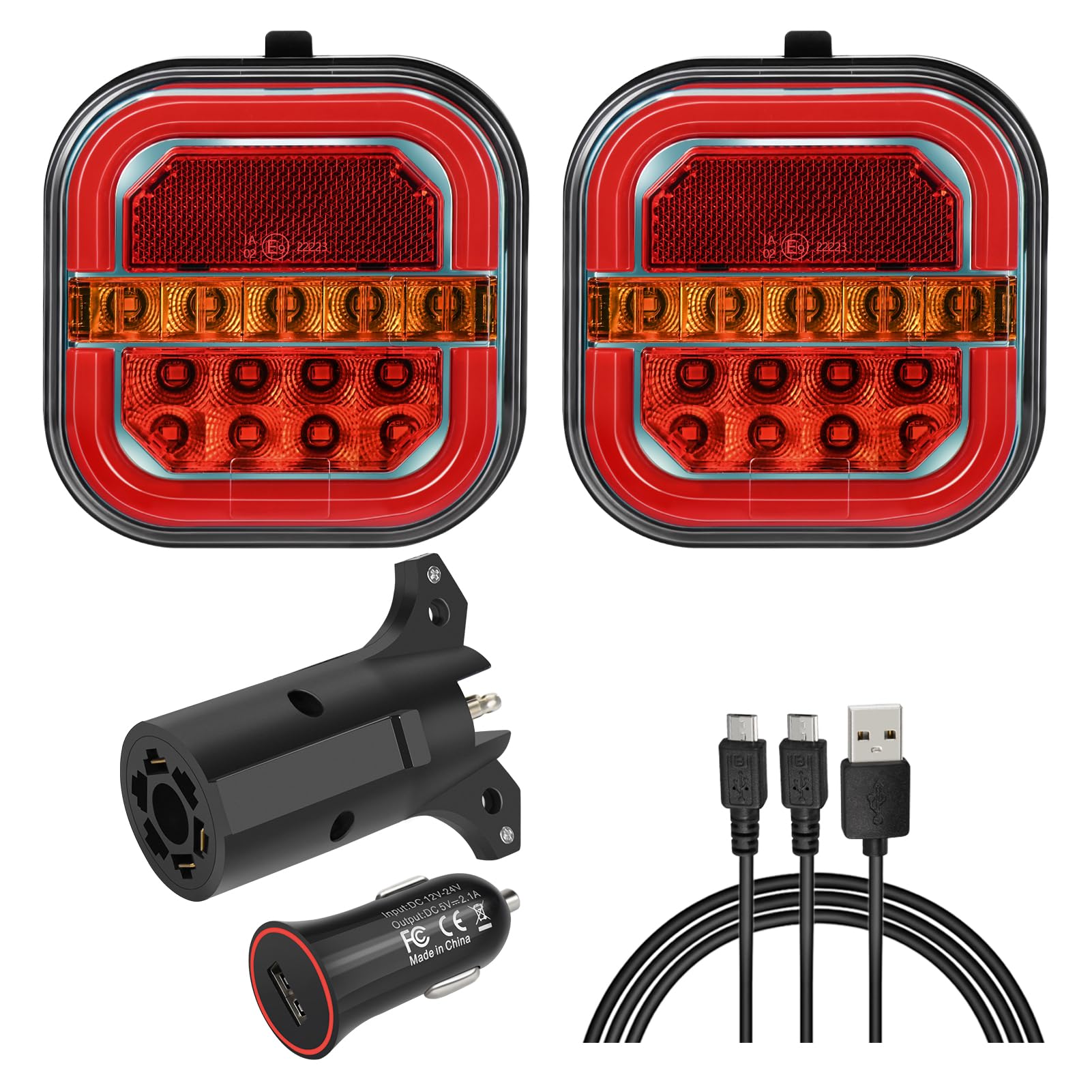
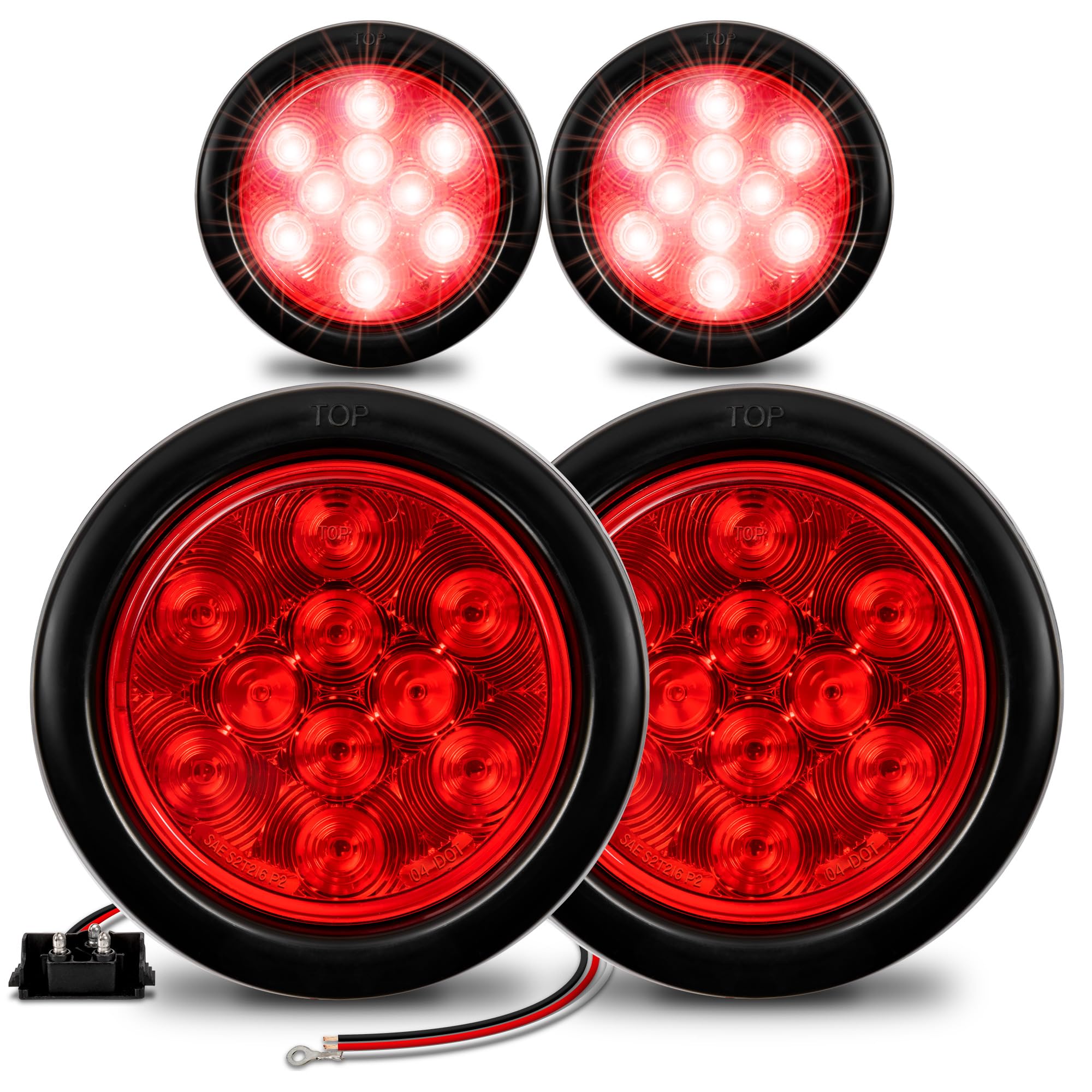
Introduction to Trailer Lights: Illuminating the Road Ahead
Trailer lights, also known as tow lights or towing lights, are external lighting fixtures mounted on the rear of a trailer. These lights are designed to provide clear visual signals to other road users, indicating the presence, dimensions, and braking intentions of the trailer. Properly functioning trailer lights are essential for safe towing, preventing accidents and ensuring compliance with traffic regulations.
Types of Trailer Lights: Understanding Their Functions
Trailer lights come in various configurations, each serving a specific function:
-
Tail Lights: These red lights illuminate the rear of the trailer, indicating its presence to vehicles following behind.
-
Brake Lights: Red brake lights activate when the trailer brakes are applied, alerting other drivers of the trailer’s slowing or stopping intentions.
-
Turn Signal Lights: Amber turn signal lights indicate the direction in which the trailer is about to turn, helping other road users anticipate its movement.
-
Clearance Lights: These amber or white lights mark the top corners of the trailer, outlining its dimensions and enhancing visibility, especially at night or in low-light conditions.
-
Side Marker Lights: Amber or red side marker lights are mounted on the sides of the trailer, further highlighting its width and presence.
Installation of Trailer Lights: Ensuring Proper Connection
Installing trailer lights requires careful attention to detail and proper wiring techniques. Here’s a simplified overview of the process:
-
Identify Connection Points: Locate the trailer’s light connection points, typically near the rear bumper or axle.
-
Match Wiring Colors: Match the color-coded wires from the trailer to the corresponding wires on the towing vehicle.
-
Secure Connections: Use wire connectors or crimping tools to establish secure electrical connections.
-
Grounding: Ensure a proper ground connection is established to complete the electrical circuit.
-
Testing and Adjustment: Test all lights to ensure they function correctly, and adjust mounting brackets if necessary.
Maintenance of Trailer Lights: Keeping Them Bright and Reliable
Regular maintenance is essential to keep trailer lights in optimal condition. Here are some key maintenance practices:
-
Visual Inspection: Regularly check all lights for signs of damage, corrosion, or loose connections.
-
Bulb Replacement: Replace burnt-out bulbs promptly with compatible ones, ensuring the correct wattage and type.
-
Lens Cleaning: Clean the lenses of dirt, grime, or moisture to maintain clear visibility.
-
Electrical Connections: Inspect and tighten electrical connections to prevent corrosion and ensure proper functioning.
Troubleshooting Trailer Light Issues: Identifying and Addressing Problems
If you encounter problems with your trailer lights, follow these troubleshooting steps:
-
Check Bulbs: Ensure bulbs are not burnt out and are of the correct wattage and type.
-
Inspect Connections: Check for loose, corroded, or damaged wiring connections.
-
Fuse Check: Verify that the corresponding fuses on the towing vehicle are not blown.
-
Ground Fault Detection: Check for a possible ground fault using a multimeter.
-
Professional Assistance: If the issue persists, seek assistance from a qualified electrician or trailer repair specialist.
Compliance with Trailer Lighting Regulations
Trailer lighting regulations vary by region and country. It’s crucial to familiarize yourself with the specific regulations applicable to your towing situation. Here are some general guidelines:
-
Minimum Number of Lights: Ensure your trailer has the minimum required number of lights for its size and type.
-
Light Placement: Lights must be mounted in the specified locations according to regulations.
-
Light Visibility: Lights must be visible from specified distances and angles.
-
Reflective Tape: Use reflective tape on the trailer’s sides and rear to enhance visibility.
Trailer Lights – Essential for Safe and Compliant Towing
Trailer lights are essential in maintaining safety and visibility for trailers on the road. Firstly, by understanding the different types of lights and their functions, operators can ensure that each lighting component serves its designated purpose. Additionally, proper installation is paramount to the operational efficacy of trailer lights, as incorrectly installed lights can lead to malfunctions or diminished visibility.
Moreover, regular maintenance is crucial in preserving the functionality and longevity of your trailer lights. This proactive approach can prevent potential issues before they arise and cause safety hazards. Equally important, having the know-how to troubleshoot common problems with trailer lights can save time and resources, as well as reduce the risk of accidents due to lighting failures.
Choosing the Right Trailer Lights: Factors to Consider
Selecting the right trailer lights for your specific needs requires careful consideration of several factors:
- When deciding on the right lighting for your trailer, the size and type of the trailer play a pivotal role, as they directly influence the number and configuration of lights required. For instance, larger trailers may necessitate additional lighting elements like clearance lights and side marker lights to adhere to safety standards. Furthermore, it’s crucial to ensure that the lights you select are not only bright enough but also visible from the appropriate distances to comply with regulations and enhance nighttime visibility, ensuring both safety and legal compliance.Moreover, durability becomes a significant concern; it’s advisable to opt for trailer lights constructed with durable materials capable of withstanding the elements and potential road hazards. Weatherproof lights with sealed housings are particularly ideal for long-lasting performance, providing a reliable lighting solution in various environmental conditions.
Another important consideration is the availability of replacement parts, such as bulbs and lenses, for the chosen light fixtures. Choosing lights with readily available replacement parts can drastically ease the maintenance process, ensuring that your trailer lights remain functional with minimal downtime.
Finally, if you’re planning to install the lights yourself, the ease of installation becomes a key factor. Lights that feature user-friendly designs and clear installation instructions can greatly simplify the installation process. Pre-wired lighting kits, in particular, can offer a straightforward solution, making the installation process more manageable for DIY enthusiasts.
By keeping these considerations in mind—ranging from the initial selection based on trailer size and type to final considerations around ease of installation—you can ensure a well-lit, safe, and compliant trailer lighting setup.
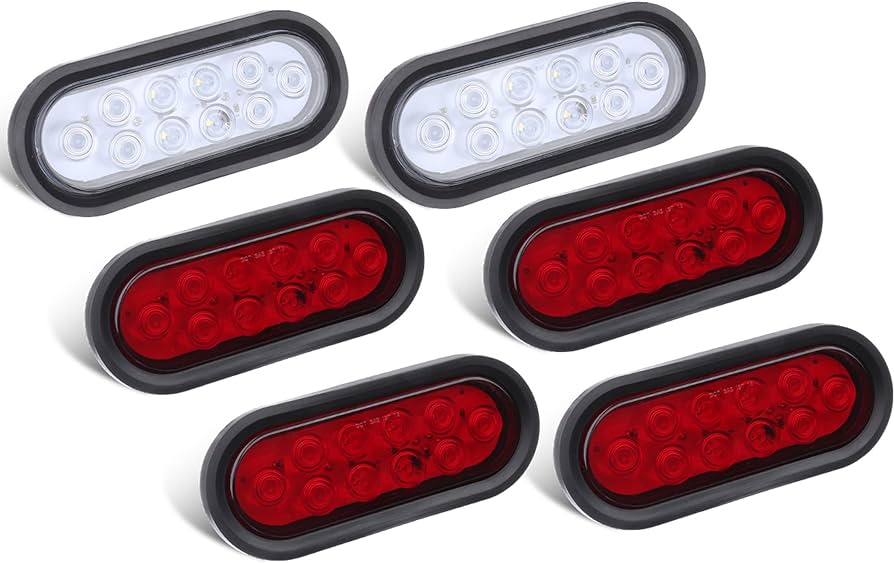
Additional Tips for Safe Towing with Trailer Lights
Beyond ensuring your trailer lights are properly functioning, here are some additional tips for safe towing:
-
Double-Check Lights Before Each Trip: Before setting off on a trip, take a few minutes to perform a visual inspection of all trailer lights, ensuring they are operational and free of damage.
-
Use Reflective Tape: Apply reflective tape to the sides and rear of your trailer to enhance its visibility, especially during nighttime or low-light conditions.
-
Maintain Safe Following Distances: Increase your following distance from the vehicle in front of you to account for the additional length of your trailer. This allows for ample reaction time in case of sudden braking.
-
Be Mindful of Trailer Width: When changing lanes or navigating turns, be aware of your trailer’s increased width compared to your towing vehicle.
-
Regular Trailer Maintenance: Regularly inspect your trailer, including its tires, brakes, and hitches, to ensure everything is in proper working order and safe for towing.
By following these tips and maintaining properly functioning trailer lights, you can contribute to a safer and more enjoyable towing experience for yourself and others on the road.
Leave a Reply